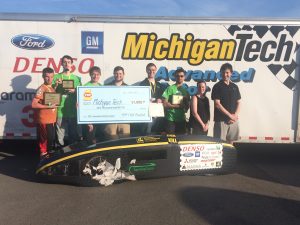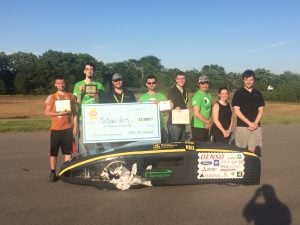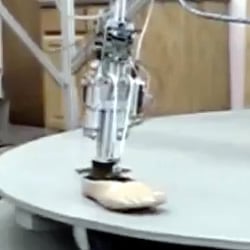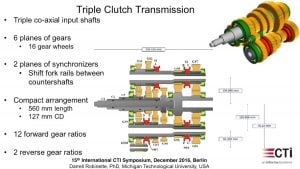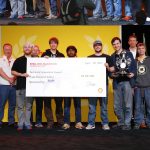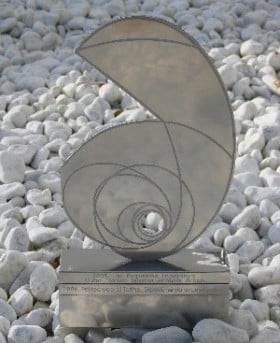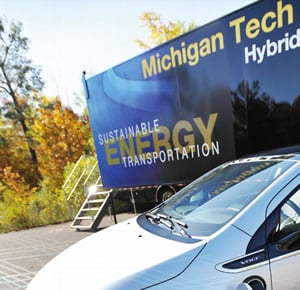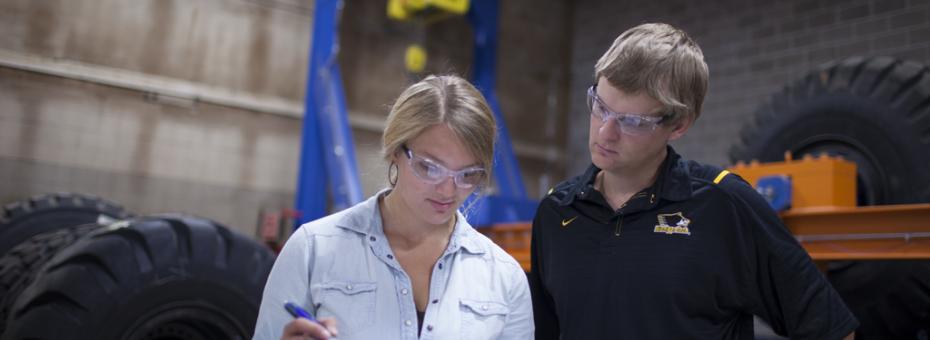Michigan Tech’s Supermileage Systems Enterprise, part of Tech’s Advanced Motorsports, took first place for innovation solutions at SAE International’s Collegiate Design Supermileage Competition in Marshall, Michigan. The $1,000 award was sponsored by Top 1 Oil.
Michigan Tech’s team was one of 23 teams from the US and Canada who participated in the competition and one of 14 who passed the technical inspection. The Tech team placed 5th overall based their design report, presentation and fuel economy results, winning another $500 prize. They also won awards for best design execution and best overall team attitude, adding another $400 to their winnings.
But the hero of the day was Claire Sullivan, who was driving in her first Supermileage competition. Rick Berkey, Enterprise director, said: “I am giving our driver Claire Sullivan the ‘Coolest Driver under Pressure’ Award for her on-track performance.”
Berkey explained. “We were the last team on the track, and our final run was going very well. All this changed on lap 5 of 6, when the chain came off. We thought we were done and even stopped timing our laps. BUT, our driver Claire exited the vehicle (which is allowed) and got the chain back on without assistance.
“Here is where the excitement comes in,” Berkey continued. “In order to post a successful run and comply with the minimum and maximum speed constraints, we needed to complete the final lap somewhere between 3:50 and about 4:10 minutes—only a 20-second window to hit and about 2 minutes faster than our optimal lap times, all without any feedback on speed/time.
“As Claire accelerated, the engine cover blew off; it is normally secured by tape. Then, the cockpit cover blew off. It is not really designed for the driver to reinstall unassisted while sitting (or rather lying) in the car.
“To make matters worse, the cover bumped one of the kill switches in the process and shut the car off. Claire figured this out and reached up to turn the switch to the run position (all while strapped in a six-point safety harness).
“At this point we literally told Claire over the radio to ‘trust her gut.’ And she did. Her final lap was 3:57–not too fast, not too slow, but just right. The timing judges were impressed; we were in awe, and Claire was clearly our hero of the day.”
By Jenn Donovan.
The event took place June 8-9, 2017, at the Eaton Corporation in Marshall, Michigan.
Complete Results
by Rick Berkey
Event Summary:
- We were one of 23 registered teams – 6 from Canada and 17 from the US, including 3 from Michigan (other MI teams were Lawrence Tech and Univ. of Detroit – Mercy).
- Of the 23 registered teams, we were one of 14 who passed technical inspection.
- We earned a design score of 325 out of 450 possible, based on our written report and verbal presentation.
- After battling engine tuning and chain tensioning problems nearly all day, we worked through these issues and made two successful fuel economy runs of 443 and 535 mpg.
Results:
- We placed 5th overall based our design report, presentation, and fuel economy results ($500). Our design score helped us, as our fuel economy was only 7th highest.
- We earned 1st place Innovative Solutions Award, sponsored by Top 1 Oil ($1000 and plaque).
- We received the award for Best Design Execution, selected by the event organizers ($300 and plaque).
- We received the award for Best Overall Team Attitude ($100 and plaque), selected by the event organizers based on discussions with other teams in the pits. Our team spent a lot of time helping the Iowa State team who was having a lot of challenges trying to pass inspection. I’m most proud of this award, as it shows the true character of our team.
- I am giving our driver Claire Sullivan the ‘Coolest Driver under Pressure’ Award for her on-track performance below.
